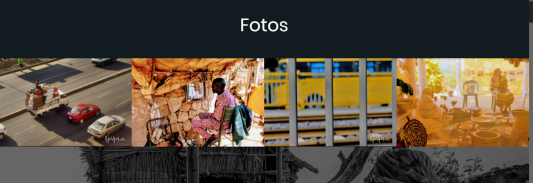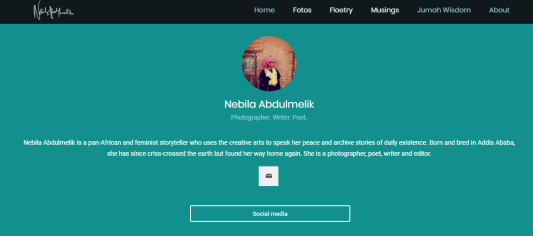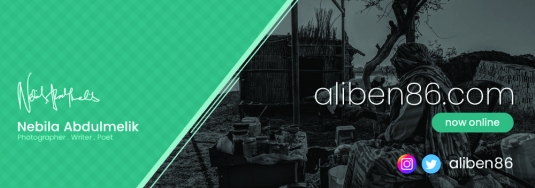
As the holy month of Ramadan comes to a close, here are 30 reminders to keep us grounded and in tune with the principles that we tend to practice throughout this month so we may continue to espouse these all year round.
1. Practice self-restraint
O ye who believe! Fasting is prescribed to you as it was prescribed to those before you, that ye may (learn) self-restraint. Quran 2:183
2. Be slow to anger.
‘Raise your words, not your voice. For it is rain, not thunder that grows flowers.’ – Rumi
3. Give thanks.
A grateful heart is key to contentment and happiness. Be not like the kid who has a whole cake minus one slice who is miserable. Be rather like the kid grinning from ear to ear, holding one slice.
4. Be courteous.
‘When a courteous greeting is offered to you, greet in return with a greeting still more courteous, or at least of equal courtesy.
Surely, Allah keeps an account of all your actions.’- Quran 4:86
5. Be kind.
To yourself, your kin, strangers. To living beings. To the earth. Disturb not a soul.
6. Be humble.
We begin to feel important. It may be the financial status. Or a prestigious position. Or some new acquisitions. The titles we add before our given names….the way people react or defer to us….and then it begins to get to our heads.
How we conveniently forget that from dust we became and to dust we return. All of us. Without exception.
7. Watch your words
‘Speak only when your words are more beautiful than silence’
8. Practice sabr.
There’s no time like God’s time.
Indeed, Allah is with the patient….Quran 1:153
9. Do good.
Is there any reward for good, other than good? Quran 55:60
10. Be better than your former self, everyday.
When we focus on improving ourselves, there’s no time to be policing other people. The only thing we have control over and are answerable for are our actions. Let’s work on us. God knows there’s a lot to do!
11. Don’t Rush.
The Swahili proverb goes, ‘haraka haraka haina baraka’ (Fast fast lends no blessings). Likewise, the Hareri proverb goes, ‘Zetbalela belela’ (The one who rushes, spoils).
Don’t rush prayers, decisions, conversations, judgements.
12. Be hungry for knowledge.
Understanding where one’s ignorance lies is the beginning of seeking knowledge/wisdom.
13. Always question.
Always seek answers and never stop learning and growing.
14. Be generous.
With your time, your money, your smiles – for even smiling is charity.
15. Seize today, for tomorrow may never come.
16. Have Faith. Like the birds.
‘If you were to rely on Allah as He should be relied on, He would provide for you as He provides for the birds. They go out early in the morning hungry and return in the evening full.’ – Narrated by at-Tirmidhi
17. Act (in the face of injustice)
“Whosoever of you sees an evil, let him change it with his hand; and if he is not able to do so, then with his tongue; and if he is not able to do so, then with his heart — and that is the weakest of faith.” – Prophet Muhammed (PBUH) [Muslim]
18. Love.
“Love is the greatest, purest, truest, most beautiful thing any of us will ever experience…We can never fail at anything done with love. Love is our true nature. And when we forget our true nature, we forget our true power…” – Nasim Hassan
19. Respect Time.
‘By time.
Indeed mankind is in loss.
Except for those who have believed and done righteous deeds and advised each other to truth and advised each other to patience.’ Quran 103: 1-3
20. Be clean. (body, mind & soul)
Cleanliness is part of faith and faith leads to paradise. – Prophet Muhammed (PBUH)
21. Be hospitable.
Open your home and your hearts to those in need.
22. Pray.
Earnestly and consistently.
No matter what you’re doing, take time out to connect with the Almighty.
23. Be disciplined.
For to accomplish anything meaningful requires discipline.
24. Don’t bow down.
Unless it’s to the Almighty.
25. Tread gently.
The worshippers of the All-Merciful are they who tread gently upon the earth, and when the ignorant address them, they reply, “Peace!” – Quran 25:63
26. Don’t force anything.
There is no compulsion in religion. And so there should be no compulsion in any other arena of life.
27. Seek forgiveness.
And forgive those who’ve wronged you. Don’t hold on to burdens that will follow you and hold you down all the days of your life. Tread lightly.
28. Don’t despair.
For with every hardship, comes relief. Quran 94:6
29. Fear none but the Almighty.
…Fear not men, but fear me, and sell not my signs for a miserable price… Quran 5:44
30. Be just.
O ye who believe! stand out firmly for Allah, as witnesses to fair dealing, and let not the hatred of others to you make you swerve to wrong and depart from justice. Be just: that is next to piety: and fear Allah. For Allah is well-acquainted with all that ye do. – Quran 5:8






 Thank you to all of you who’ve been following posts on this blog.
Thank you to all of you who’ve been following posts on this blog.






Those Who Hold Up Half Our Skies
25 May 2018 Leave a comment
by Nebila Abdulmelik in Political Commentary, Quotable Quotes, Tributes Tags: #AfricaDay, forgotten heroes, freedom, Liberation, love, Pan-Africanism, women
As today, May 25th marks Africa Day, I’ve seen many posts about the heroes of this continent. As is often the case, the names that were mentioned were predominantly, if not all, male. It reminded me of being at the 8th Pan-African Congress in Accra in 2015 and feeling the same way – this sinking feeling that half the stories are not being told.
Below are my thoughts and reflections from that day, which unfortunately are still relevant.
Where are those who hold up half our skies?!
Often forgotten, without whom the sky would’ve fallen?
All morning, we heard the high-level dignitaries pay tribute to pan-Africanists. I didn’t hear one female name being mentioned. Is it that we have done nothing for this movement? Is it that our contributions are meaningless? Or is that we are invisible? That we have been removed, or were never included in the collective memory and public imagery of Pan-Africanism? For those who would ask me who those women are, the list is by no means exhaustive, but here are a select few that I would like to acknowledge and pay tribute to:
Amy Garvey
Winnie Mandela
Graca Machel
Amina Mama
Ama Ata Aidoo
Chimamanda Ngozie Adichie
Miriam Makeba
Angelique Kidjo
Maya Angelou
Mable Dove Danquah
Taytu Betul
Adelaide Caseley-Hayford
Bibi Titi Mohamed
Fatoumatta Toure
Funmilyao Ransome Kuti
Gambo Sawaba
Muthoni Likimani
Thenjiwe Mtintso
Djamila Bouhired
Taytu Betul
Wangari Maathai
Charlotte Maxeke
Albertina Sisulu
Audley Queen Mother Moore
Louise Thompson Patterson
Thyra Edwards
Bonita Williams
Williana Burroughs
Sallye Bell Davis
Grace P. Campbell
Charlene Mitchell
Rahima Moosa
Emma Mashinini
Ruth First
Lillian Ngoyi
Sophie Williams
And countless others – often forgotten, who mobilized for Africa’s liberation, challenged
enslavement and colonization in defiance of imperialist, patriarchal culture and for a complete liberation of Africans – fighting multiple forms of oppression, domination and exploitation.
Interconnected Struggles
As Samora Machel and Thomas Sankara remind us:
None of us are free until we are all free. This is in line with the emancipatory nature of the pan-Africanist vision. We must not buy into a hierarchy of oppressions, but rather collectively fight the multiple forms and systems of oppression and exploitation that keep us subjugated. Systems such as patriarchy which ensure women and girls are dispossessed and under siege every day, that ensure they are unsafe in their homes, streets, schools and places of work. How do we convey to them that their lives, and their dreams matter to us? That we will be their dream keepers, as Langston Hughes proposed, and will wrap their dreams and heart melodies in blue-cloud cloth and protect them from the too-rough fingers of the world?
We must recognize that ‘the struggle for Africa’s liberation and development is also a struggle for women’s liberation, gender equality and gender justice.’ Until we realize the interconnectedness and inseparability of our various struggles for justice; including gender, economic, environmental and ecological, and social justice; our movements will remain fragmented and our progress as a people will be stifled.
Power
If we thought the task ahead of us unsurmountable, Malcolm X reminds us: “Power in defense of freedom is greater than power on behalf of tyranny and oppression, because power, real power, comes from our conviction which produces action, uncompromising action.”
Toni Morrison, in reference to another system of oppression; racism also warns us of distractions that will derail us: “The function, the very serious function of racism is distraction. It keeps you from doing your work. It keeps you from explaining, over and over again, your reason for being. Somebody says you have no language, so you spend 20 years proving that you do. Somebody says your head isn’t shaped properly, so you have scientists working on the fact that it is. Somebody says you have no art, so you dredge that up. Somebody says you have no kingdoms, so you dredge that up. None of that is
necessary. There will always be one more thing.”
Let us not get distracted.
Compassion – where is the love?
A comrade reminded me that at the heart of Pan-Africanism is love, a compassion for humanity – the ‘sympathetic apprehension of another’s suffering as intolerable’. Perhaps Che said it best when he said:
“At the risk of seeming ridiculous, let me say that the true revolutionary is guided by a great feeling of love. It is impossible to think of a genuine revolutionary lacking this quality.”
Similarly, Malcolm X summed up his ethos towards the end of his life: “I have had enough of someone else’s propaganda. I am for truth, no matter who tells it. I’m for justice, no matter who it is for or against. I am a human being, and as such, I am for whoever and whatever benefits humanity as a whole.”
May this be our politics – one in which love for one another, for humanity, for the continent, for the movement, for the earth and its inhabitants trumps our love for power, prestige and privilege.
A luta continua.
Sources and for further reading:
Pan-Africanism & the Women’s Movement (African Women’s Journal, Issue VI)
Feminism & Pan-Africanism (Feminist Africa Journal)
Share this: